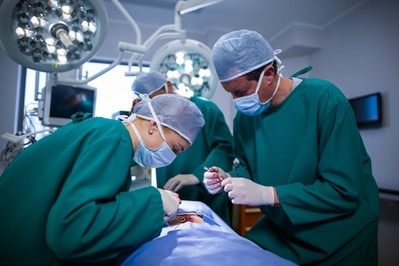A surgical procedure where the appendix, a small, finger-shaped pouch located in the lower right abdomen and attached to the large intestine, is removed. This surgery is typically performed to treat appendicitis, a condition where the appendix becomes inflamed or infected, causing abdominal pain and other symptoms.
Indications
Inflammation of the appendix due to infection or blockage and rupture of the appendix, which can lead to severe infection (peritonitis)
Symptoms of Appendicitis:
- Pain around the navel or upper abdomen
- Loss of appetite
- Nausea and vomiting
- Abdominal swelling
- Low-grade fever
- Constipation
Causes of Appendicitis
Blockage of the appendix is due to hardened stool, parasites, tumors, or bacterial infection inside the appendix.
Diagnosis
Physical examination, elevated white blood cell count indicates infection, CT scan or ultrasound to visualize the appendix and confirm the diagnosis.
Types of Appendectomy:
- Open Appendectomy: Traditional surgery involving a single abdominal incision.
- Laparoscopic Appendectomy: This minimally invasive procedure uses several small incisions and a camera (laparoscope) for guidance.
Procedure
Appendectomy is performed under general anaesthesia to ensure that the patient is unconscious and feels no pain during surgery. Depending on the procedure type, surgeons make a single large incision or several smaller ones. The appendix is then located and carefully removed, and the incisions are closed using sutures.
Recovery
Recovery after an appendectomy varies depending on the procedure type. Laparoscopic surgeries typically allow shorter hospital stays (1-2 days), while open surgeries may require longer recovery. Pain is managed with medications, and the diet progresses from clear fluids to regular food. Physical activity starts gently and increases gradually. Most of the patients resume normal activities within a few weeks, guided by medical advice.
Appendectomy is a surgical procedure performed to treat appendicitis promptly and prevent complications associated with a ruptured appendix. Maintain a healthy diet and exercise regular to reduce the risk of gastrointestinal issues. Consult with a doctor for personalized medical advice and treatment options.

